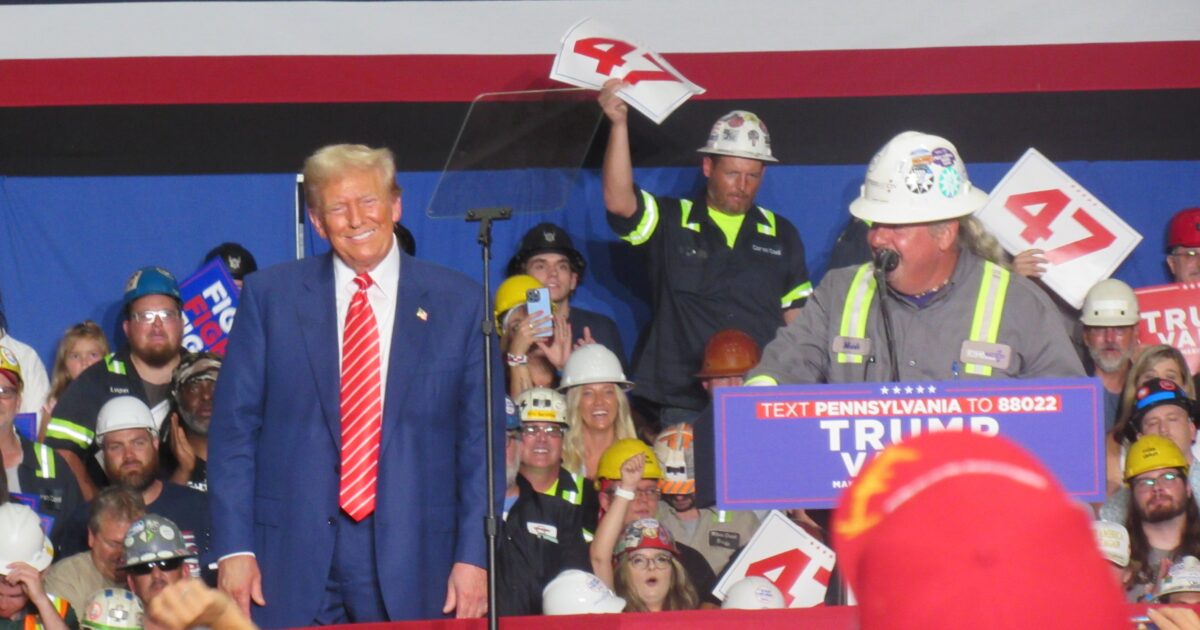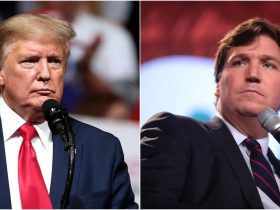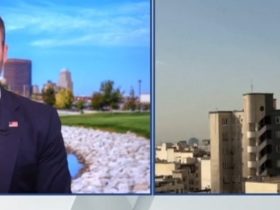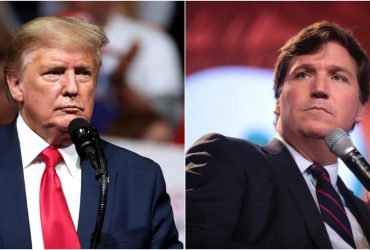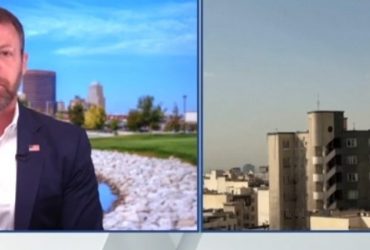President Trump with steel workers in October 2024. Trump has always been the favorite for working men and women.
Donald Trump has reshaped the American economy in ways that extend far beyond traditional policy.
His approach has not only revived U.S. manufacturing and trade competitiveness through harsh tariffs but also tackled one of the most underreported issues in the labor market: the abuse of foreign work visas.
These reforms have been a direct defense of the American worker, ensuring that high-paying, high-skill jobs remain accessible to U.S. citizens rather than being siphoned away by cheaper foreign labor.
WATCH: Trump’s TARRIFS Are WORKING
One of Trump’s most significant victories has been his success with tariffs.
Democrats claimed tariffs on Chinese steel, aluminum, and other imports would harm the economy, but the opposite happened.
American industries, previously stifled by low-cost, government-subsidized foreign goods, finally had the breathing room to grow.
Plants that had been shuttered for years began reopening, and new jobs were created.
The ripple effect was undeniable: tariffs drove companies to rethink outsourcing, pushed foreign producers to negotiate fairer trade deals, and sent a clear message that America would no longer be exploited in global markets.
Tariffs weren’t just a policy tool—they were a signal of economic independence.
Now, Trump has introduced another groundbreaking policy: a $100,000 fee for H-1B visa applications.
For years, Big Tech and multinational corporations have abused this program to undercut American workers.
By hiring foreign employees willing to accept significantly lower pay, companies boosted their profits at the expense of U.S. talent.
These workers were often tied to their employers for visa sponsorship, making them less likely to demand fair wages or better conditions.
The result was an uneven playing field, where American graduates in fields like information technology struggled to compete in their own country.
Trump’s $100,000 application fee changes the equation.
If corporations truly believe they cannot find talent domestically, they now face a steep cost for choosing a foreign worker.
By forcing companies like Google, Microsoft, and other tech giants to pay for their decision, Trump is ensuring that American workers are given priority.
It makes outsourcing expensive and incentivizes hiring from within the U.S. labor force first.
Taken together, tariffs and visa reforms represent more than economic tweaks; they represent a philosophical shift.
For decades, American workers were treated as expendable while corporations chased cheap labor and cheap imports.
Trump reversed that trajectory.
He put America first in trade, labor, and industry, creating an economy that rewards citizens rather than multinational giants.
His policies prove that protecting American jobs isn’t just possible—it’s necessary for long-term prosperity.
The post Trump Gave MILLIONS of Americans Their Jobs Back appeared first on The Gateway Pundit.

